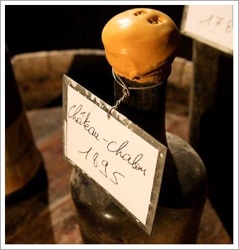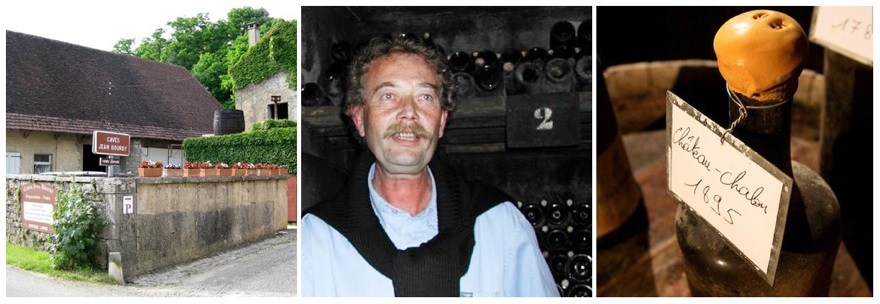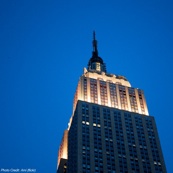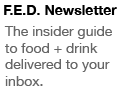Jean-Francois Bourdy, Jura, France, Wine, White Wine, Red Wine, Recommendations, Poulsard, Trousseau, Jean-Philippe Bourdy, Biodynamic, Demeter, Rudolf Steiner, Pinot Noir, Chardonnay, Savagnin, Vin Jaune, Macvin Du Jura







Who
Jean-François Bourdy is a 15th generation biodynamic winemaker in Jura, France.
Why
Caves Jean Bourdy has been making wine since 1475 in Arlay, Jura and haven’t changed their winemaking methods since the 15th century.
Recommendations
Jean-François Bourdy’s recommendations for where to eat, drink and shop in New York and the Jura.
Winemaker: Jean-François Bourdy
September 14, 2011



One need not look further for an estate in France representative of the word “tradition” than Caves Jean Bourdy in Jura. Following a decades-long trend, which included the significant use of new oak and winemaking styles that favored ripe and densely concentrated fruit, the concept of tradition in wine has taken on new meaning. These days, one often hears stories of the new generation of a winemaking family taking the reins and reverting to a more elegant, less extracted style that recalls that of previous generations. In the case of brothers Jean-François and Jean-Philippe Bourdy, there has never been such an identity crisis. Certified biodynamic since 2005, Caves Jean Bourdy is a domaine that hasn’t wavered from honoring its rich history dating back to the year 1475. Expressive and fiercely proud of being a Jura winemaker, Jean-François Bourdy is committed to letting the world know about Jura.

Q. What do you define as the “classic style” of Jura wines?
A. Mainly crafted from Chardonnay and Savagnin for the whites. The wines are not topped up (referring to the usual addition of a small amount of wine to the barrel to compensate for the natural evaporation that occurs as wines mature). As a result, the whites develop aromas that include green apple, hazelnuts, almonds and savory spices.
The reds are made from local varietals: Poulsard and Trousseau as well as Pinot Noir. They are spicy, earthy, and light-to-medium bodied. Other regional specialties are Vin Jaune (a sherry-like wine that ages for a minimum of just over 6 years without being topped up) and Macvin du Jura (a herb-infused fortified wine).
Q. What are some of the main contributing factors to Jura’s distinct style?
A. There are a few. The blue marl soils are rich in minerals that the vines draw from, especially as the roots dig deeper. Unique ambient yeasts allow the wines that are not topped up to develop a protective layer that allow a controlled exposure to oxygen as they age (a similar process as that which occurs with sherry wines, although not with the same yeasts). There is also the element of long aging, which allows the wines time to reveal their unique characteristics.
Q. What are some of the challenges facing Jura winemakers?
A. It’s not easy to be a winemaker from Jura in an international market. Bordeaux produces 120 times the volume that we do, and geographically, we’re right beside Burgundy, which takes the lion’s share of the spotlight. We simply don’t have the same production or financial resources to be able to develop recognition of our style on a competitive scale. Even in New York, where the market is quite large and diverse, there are only so many importers that choose to carry Jura wines, and once they have one Jura winemaker in their portfolio, that’s it.
Q. Would you then say that support is stronger locally than internationally?
A. Not really. I feel frustration about the lack of support at home. If you go to Alsace, you’ll see wine lists dominated by Alsatian wines. If you go to a restaurant in Bordeaux, you’re not going to find a vast selection of Burgundy wines to drink on the wine list. In Jura, with few exceptions, you’ll find a handful of Jura wines on wine lists comprised of several other regions. There are not a lot of sommeliers in Jura; the restaurant culture here is not as developed as in some other places in France.
Q. You display such fervor in defending the history and the style of the region’s wines (and more specifically, those of Caves Jean Bourdy). Did you always know that you wanted to take the reins of the family domaine?
A. No, not at all. My brother and I both left to go travel and explore. I even lived in New York for a year. I returned in 1990; my brother and I were in our early thirties when we came back to work here. By then, I was ready.
Q. So at that point, you and your brother took over the estate from your father?
A. Yes. It didn’t happen overnight, though; there is a lot of knowledge that needs to be transferred from one generation to the next. My father still participates in some of the activities of the estate. My mother, who is 82, still receives clients and guests when I am away on business trips. She’s in fine form; people leave in awe of her energy.
Q. What about biodynamics? You became Demeter certified in 2005. Why?
A. We felt growing concern for the environmental sustainability of certain vineyard practices. My brother and I talked about it after reading Rudolf Steiner’s book. We realized that we had the agricultural background to pull it off without it being too ambitious a venture. What was crazy was that from one year to the next, we switched the entire domaine to biodynamic agriculture. It was a huge risk to take. Had it not worked, we could have lost an entire year’s worth of work. We felt we could take that risk with our experience in farming, and luckily, we were right.
Q. So you wouldn’t necessarily recommend that approach to an estate considering biodynamic certification.
A. (Laughs) I would proceed a little more cautiously, maybe converting a part of the vineyard each year (unless they’ve got other sources of income to fall back on if things go wrong).
Q. What makes you stay where you are and keep going?
A. There are many reasons. It’s la mode de vie (the way of life). It’s the historical architecture; it’s the air; it’s the tranquility. Living in the country is really beautiful. There are 750 people in the village of Arlay, where we are situated.
Q. Is there any part of you that feels a sense of being able to relax a bit, knowing that the estate is over 500 years old and has proven itself to be an anchor of Jura’s traditional winemaking practices?
A. Let me explain it this way: in 1991, we lost 95% of our harvest to frosts. We basically didn’t have a 1991 vintage. We are, at the end of the day, farmers and you can never rest on your laurels in agriculture. No matter what your track record is, nature has a way of making you humble. Nature is a great equalizer.

New York
FIND...
Astor Wines and Chambers Street Wines. Both places, the buyers are passionate, motivated, and love what they do.
Zev Rovine is my importer and he’s a young guy full of energy and doing a great job.
[See details.]
EAT...
Trestle on Tenth -- the food has elegance and finesse that I haven’t yet tasted in North America. They did a series of small courses paired with my wines and the pairing were outstanding.
[See details.]
DRINK...
The Ten Bells -- the owner, Fifi, does a great job.
[See details.]
Jura, France
EAT...
L’Hostellerie St. Germain -- the young chef Marc Tupin received a mention of being one of the best rising talents in the Michelin Guide; a modest and creative young chef that does beautiful food.
[See details.]
Recommendations

Details of Jean-François Bourdy’s recommendations for where to eat, drink and shop in New York and the Jura.
Wines From The Jura Region Of France











Share



Images Courtesy of Jean-François Bourdy
Interviewed By ETHELIYA HANANOVA

DOMAINE JEAN BOURDY
Jura / France
41 Rue St. Vincent
39140 Arlay, France
T: +33/(0)3.84.85.03.70
Website:
Buy The Wines:

















